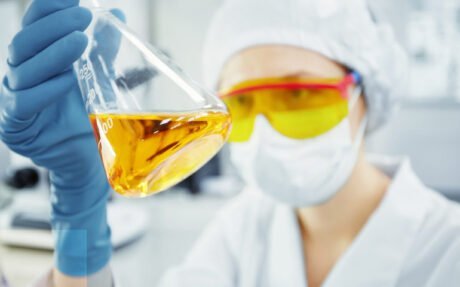The Biology course provides a comprehensive exploration of fundamental concepts and principles in the field. Topics covered include basic biology, biological molecules, taxonomy, cells and tissues, transport systems, bioenergetics, nutrition and digestion, genetics and evolution, ecology, and biotechnology.
Overview
The Biology course provides a comprehensive exploration of the fundamental concepts and principles in the field of biology. Students will cover a wide range of topics, from the introduction to basic biology to advanced areas such as genetics, evolution, and biotechnology. The course begins with an introduction to basic biology, laying the foundation for understanding the principles of life and the scientific methods used in biological research. Students will learn about the structure and function of biological molecules, including carbohydrates, lipids, proteins, and nucleic acids. Taxonomy of organisms is a key focus of the course, where students will explore the classification and naming of living organisms. They will understand the hierarchical system of classification and learn about the diversity of life on Earth. The study of cells and tissues of organisms is vital in understanding the building blocks of life. Students will delve into the structure and function of cells, as well as the organization of cells into tissues and organs. The transport system in organisms is explored, including the mechanisms of transportation of substances across cell membranes and within multicellular organisms. Students will gain insights into how organisms maintain homeostasis through efficient transport systems. Bioenergetics, the study of energy flow in living organisms, is a critical component of the course. Students will learn about the processes of photosynthesis and cellular respiration, as well as the roles of ATP and enzymes in energy metabolism. Food, nutrition, and digestion are examined in-depth, covering the various types of nutrients, their sources, and the processes involved in digestion, absorption, and nutrient utilization by organisms. Genetics and evolution play significant roles in shaping the diversity of life. Students will explore the principles of inheritance, genetic variation, and the mechanisms of evolutionary change. They will gain insights into the processes of natural selection, adaptation, and speciation. Ecology, the study of the interactions between organisms and their environment, is a crucial aspect of the course. Students will learn about ecosystems, populations, and communities, as well as the principles of ecological balance and sustainability. The course concludes with an exploration of biotechnology, where students will understand the applications of biological techniques in areas such as medicine, agriculture, and environmental conservation. They will explore topics such as genetic engineering, cloning, and biotechnological tools used in research and industry. Throughout the course, students will engage in theoretical lectures, laboratory experiments, and practical exercises to reinforce their understanding of biological concepts and develop scientific skills. By the end of the course, students will have a solid foundation in biology, enabling them to comprehend the complexities of life and contribute to advancements in various biological disciplines.What Will You Learn?
- Gain a comprehensive understanding of the fundamental concepts and principles in the field of biology.
- Explore the diverse topics of basic biology, including the structure and function of biological molecules.
- Study the taxonomy of organisms, understanding the classification and naming systems used in biology.
- Examine the cells and tissues of organisms, delving into their structures and functions.
- Learn about the transport systems in organisms and how substances are transported at the cellular and organismal levels.
- Understand the principles of bioenergetics, including photosynthesis, cellular respiration, and energy metabolism.
- Explore the topics of food, nutrition, and digestion, including the processes involved in nutrient absorption and utilization.
- Gain insights into genetics and evolution, studying inheritance patterns, genetic variation, and mechanisms of evolutionary change.
- Learn about ecology and the interactions between organisms and their environment, including ecosystems, populations, and communities.
- Explore the applications of biotechnology in various fields, such as medicine, agriculture, and environmental conservation.
Who Should Take The Course
- Students studying biology or related disciplines at the secondary or tertiary level.
- Aspiring biologists, researchers, or healthcare professionals seeking a strong foundation in biology.
- Science enthusiasts with a curiosity and interest in the field of biology.
- Health professionals, such as doctors, nurses, and pharmacists, looking to enhance their understanding of biological concepts.
- Environmentalists passionate about conservation and sustainability, wanting to gain insights into ecological principles.
- Individuals interested in exploring the field of biotechnology and its applications in medicine, agriculture, and research.
- Lifelong learners seeking personal growth and intellectual enrichment through expanding their knowledge of biology.
Requirements
There are no specific prerequisites for taking this Biology course. However, a basic understanding of scientific concepts and terminology will be beneficial in comprehending the course material. Additionally, having a curiosity for the natural world and a willingness to engage in critical thinking and problem-solving will contribute to a successful learning experience.Course Curriculum
-
- What is Biology? 00:06:00
- The Scientific Method in Biology 00:06:00
- Tools and Techniques in Biology 00:06:00
-
- The Cell Structure and Function 00:06:00
- Cell Division and Reproduction 00:06:00
- Microorganisms and Their Role in Nature 00:06:00
- Mendelian Genetics 00:05:00
- Genetic Variation and Inheritance 00:06:00
- DNA and the Molecular Basis of Heredity 00:06:00
- The Theory of Evolution 00:06:00
- Mechanisms of Evolution 00:06:00
- Biodiversity and Conservation 00:06:00
- Structure and Function of Plants 00:06:00
- Plant Reproduction and Growth 00:06:00
- Plant Adaptations and Ecology 00:05:00
- Exam of Biology Level 2 00:50:00
New Courses
Blogs
Jul'23
ADHD Training for Teachers: Empowering Educators to Support Students with Attention Challenges
Relationships may be severely harmed by narcissistic behaviours, leaving emotional scars and...
Jul'23
Narcissistic Behaviour and Relationships: Understanding the Impact and Finding Healing
Relationships may be severely harmed by narcissistic behaviours, leaving emotional...
Jul'23
Childhood Trauma in Adults
What Is Childhood Trauma? Childhood trauma refers to distressing or...
Jul'23
Creating A Social Media Strategy
Set Clear Objectives:The first step in developing a successful social media...
Jul'23
Neuro-Linguistic Programming Techniques
Neuro-Linguistic Programming (NLP) is a fascinating and widely acclaimed approach...
Jul'23
Acceptance and Commitment Therapy in the UK
What is acceptance and commitment therapy? Acceptance and Commitment Therapy...





